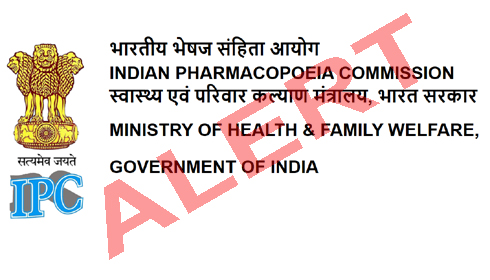
IPC issues alerts for several common drug drugs
The Indian Pharmacopoeia Commission (IPC) issued alerts for several drugs, including metoprolol, propranolol, atenolol, and nimesulide, due to adverse drug reactions, under the Pharmacovigilance Programme of India (PvPI), a system put in place to monitor the safety of medicines and ensure that any adverse effects are promptly reported and addressed.
Metoprolol, used to treat hypertension and heart disorders, has been flagged for potential side effects. Similarly, propranolol, which is used for various heart conditions and migraines, has also raised concerns. Atenolol, another medication for hypertension and angina, could lead to reversible erectile dysfunction. Nimesulide, prescribed for inflammatory conditions and pain, has also been associated with adverse reactions like fixed drug eruption (FDE).
In light of these alerts, it becomes crucial to examine the functioning of the Pharmacovigilance Programme of India (PvPI) and its effectiveness in monitoring and addressing such adverse drug reactions.
According to the 2022–23 annual report, the PvPI has expanded significantly, increasing the number of adverse drug reaction monitoring centres (AMCs) from 534 to 691. The 2nd National Pharmacovigilance Week focused on encouraging consumers to report adverse drug reactions to PvPI. This initiative aimed to sensitise healthcare professionals and other stakeholders about the importance of reporting adverse drug reactions.
During the National Pharmacovigilance Week, PvPI organised numerous training and awareness programmes, reaching out to over 54,000 healthcare professionals and stakeholders. Throughout the year, a total of 1795 training programs were conducted, with over 109,000 participants trained in pharmacovigilance.
PvPI also forwarded three recommendations to CDSCO for regulatory action based on the reported adverse reactions. Additionally, the Materiovigilance Programme of India (MvPI) plays a crucial role in monitoring adverse events related to medical devices. Currently, there are 150 Medical Device Monitoring Centres (MDMCs) under MvPI.
The Indian Pharmacopoeia Commission continues to provide training for skill development in pharmacovigilance, medical devices, and IP standards. These initiatives aim to create a pool of qualified and skilled human resources to effectively manage pharmacovigilance activities.
However, despite these efforts, there are still challenges in the pharmacovigilance system that need to be addressed. The reporting of adverse drug reactions by consumers and healthcare professionals needs to be further encouraged and streamlined. Additionally, there is a need for continuous monitoring and evaluation of the effectiveness of pharmacovigilance activities to ensure timely intervention and prevention of adverse drug reactions.
It is worthwhile to note here that while the Pharmacovigilance Programme of India has made significant strides in expanding its reach and raising awareness, there is a continuous need for improvement and enhancement to ensure the safety and well-being of patients taking medications.